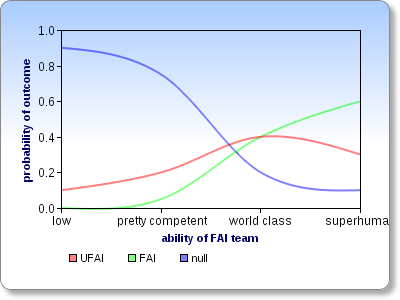Today I was appointed the new Executive Director of Singularity Institute.
Because I care about transparency, one of my first projects as an intern was to begin work on the organization's first Strategic Plan. I researched how to write a strategic plan, tracked down the strategic plans of similar organizations, and met with each staff member, progressively iterating the document until it was something everyone could get behind.
I quickly learned why there isn't more of this kind of thing: transparency is a lot of work! 100+ hours of work later, plus dozens of hours from others, and the strategic plan was finally finished and ratified by the board. It doesn't accomplish much by itself, but it's one important stepping stone in building an organization that is more productive, more trusted, and more likely to help solve the world's biggest problems.
I spent two months as a researcher, and was then appointed Executive Director.
In further pursuit of transparency, I'd like to answer (on video) submitted questions from the Less Wrong community just as Eliezer did two years ago.
The Rules
1) One question per comment (to allow voting to carry more information about people's preferences).
2) Try to be as clear and concise as possible. If your question can't be condensed into one paragraph, you should probably ask in a separate post. Make sure you have an actual question somewhere in there (you can bold it to make it easier to scan).
3) I will generally answer the top-voted questions, but will skip some of them. I will tend to select questions about Singularity Institute as an organization, not about the technical details of some bit of research. You can read some of the details of the Friendly AI research program in my interview with Michael Anissimov.
4) If you reference certain things that are online in your question, provide a link.
5) This thread will be open to questions and votes for 7 days, at which time I will decide which questions to begin recording video responses for.
I might respond to certain questions within the comments thread and not on video; for example, when there is a one-word answer.

I'm not sure that scientific talent is the relevant variable here. More talented folk are more likely to achieve both positive and negative outcomes. I would place more weight on epistemic rationality, motivations (personality, background checks), institutional setup and culture, the strategy of first trying to get test the tractability of robust FAI theory and then advancing FAI before code (with emphasis on the more-FAI-less-AGI problems first), and similar variables.
Certainly it's a reasonable concern from a distance. Folk do try to estimate and reduce the risks you mentioned, and to investigate alternative non-FAI interventions. My personal sense is that these efforts have been reasonable but need to be bolstered along with the FAI research team. If it looks like a credible (to me) team may be assembled my plan would be (and has been) to monitor and influence team composition, culture, and exposure to information. In other words, I'd like to select folk ready to reevaluate as well as to make progress, and to work hard to build that culture as researchers join up.
I can't speak for everyone, but I am happy to see SIAI become more transparent in various ways. The publication of the strategic plan is part of that, and I believe Luke is keen (with encouragement from others) to increase communication and transparency in other ways.
This one would be a decision for the board, but I'll give my personal take again. Personally, I like the recorded GiveWell meetings and see the virtues of transparency in being more credible to observers, and in providing external incentives. However, I would also worry that signalling issues with a diverse external audience can hinder accurate discussion of important topics, e.g. frank discussions of the strengths and weaknesses of potential Summit speakers, partners, and potential hires that could cause hurt feelings and damage valuable relationships. Because of this problem I would be more wholehearted in supporting other forms of transparency, e.g. more frequent and detailed reporting on activities, financial transparency, the strategic plan, things like Luke's Q&A, etc. But I wouldn't be surprised if this happens too.